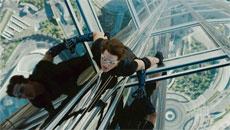You must have heard - and might be believing by now - that internet sounded the death knell for newspapers. But that may not be true.
According to new research by University of Chicago professor Matthew Gentzkow: "People have not stopped reading newspapers because of the internet".
He points out assumptions about journalism that are based on three false premises.
The first assumption is that online advertising revenues are naturally lower than print revenues, so traditional media must adopt a less profitable business model that cannot support paying real reporters.
The second is that the web has made the advertising market more competitive which has driven down rates and, in turn, revenues.
The third misconception is that the internet is responsible for the demise of the newspaper industry.
"This perception that online ads are cheaper to buy is all about people quoting things in units that are not comparable to each other - doing apples-to-oranges comparisons," Gentzkow noted.
Online ad rates are typically discussed in terms of "number of unique monthly visitors" the ads receive while circulation numbers determine newspaper rates.
By comparing the amount of time people actually see an ad, Gentzkow found that the price of attention for similar consumers is actually higher online.
In 2008, he calculated, newspapers earned $2.78 (Rs.164) per hour of attention in print and $3.79 (Rs.223) per hour of attention online.
By 2012, the price for attention in print had fallen to $1.57 (Rs.93) while the price for attention online had increased to $4.24 (Rs.250).
Gentzkow also pointed out that the popularity of newspapers had already significantly diminished between 1980 and 1995, well before the internet age, and has dropped at roughly the same rate ever since.
The study was published in the American Economic Review.





